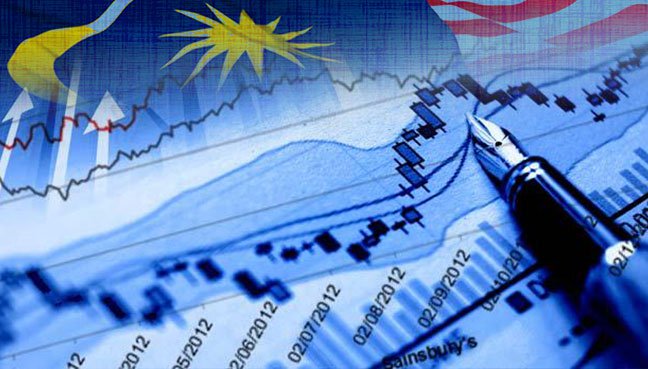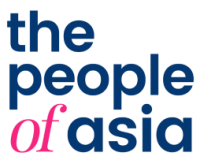Malaysian Finance Minister Lim Guan Eng table the 2019 budget on Friday (Nov 2) in parliament. The Ministry of Finance also releases and present the Economic Outlook 2019 report.
The following are the highlight for Malaysia economic outlook for next year.
- Global economy to expand 3.7 per cent in 2018 and 2019, lower than the earlier forecast of 3.9 per cent by the International Monetary Fund
- Global trade to widen by 4.2 per cent in 2018 and 4.0 per cent in 2019 (2017:5.2 per cent)
- Malaysia’s real Gross Domestic Product to increase 4.8 per cent and 4.9 per cent in 2018 and 2019, respectively, steered by sustained private sector expenditure
- Private sector growth expenditure is expected at 6.5 per cent this year and 6.4 per cent in 2019, constituting about 72 per cent of the Gross Domestic Product
- Private consumption to remain the major growth determinant in 2019, expanding 7.2 per cent, supported by a stable labour market, benign inflation and conducive financing conditions
- Private investment to post a higher growth of 5.0 per cent in 2019, attributed to capital spending in technology-intensive manufacturing and services sectors
- Public consumption to expand 1.8 per cent in 2019 on account of higher spending on emoluments, as well as, supplies and services
- Public investment to decline 1.5 per cent and 5.4 per cent in 2018 and 2019, respectively, mainly weighed down by public corporations’ lower capital spending
- Gross National Income to widen 7.1 per cent to RM1.5 trillion in 2019; private sector will account for 86.9 per cent of total savings while Gross National Savings will grow 3.4 per cent
- Total investment to increase 5.0 per cent to RM366.8 billion in 2019, leading to lower savings-investment surplus, ranging between two per cent and three per cent of Gross National Income
- Current account surplus to shrink 2-3 per cent in 2019 of Gross National Product (2018: 2.5-3 per cent)
- Gross exports to grow 3.9 per cent in 2019; imports anticipated to grow 4.1 per cent
- Travel account surplus to be higher at RM28.2 billion in 2019 driven by continued tourist arrivals
- Primary income account to register a higher deficit at RM41.4 billion, mainly due to higher profits expected by locally-incorporated multinational companies, a larger net outflow of compensation to foreign professional skills and expertise
- Manufacturing sector to expand 4.7 per cent in 2019, primarily driven by continuous demand for electrical and electronics
- Construction sector to improve slightly in 2019, expanding 4.7 per cent following an increase in new planned supply in affordable houses and industrial segments
- Agriculture sector to turn around next year with a 3.1 per cent growth from a 0.2 per cent decline expected in 2018
- Oil palm to register a 4.1 per cent growth in 2019 on higher output, price improvement to RM2,400 per tonne (from an average of RM2,300 in 2018), and an increase in matured areas, which are set to reach 5.5 million hectares
- Crude palm oil closing stocks to decline by 2.2 million tonnes in 2019 due to higher exports to major trading partners
- Government’s actual debts and liabilities as at end-June 2018 at RM1,065 billion, or nearly RM350 billion higher than the total amount revealed by the previous administration.
- These debts comprised RM725.2 billion in direct Federal Government debts, RM155.8 billion in unexpected commitments and RM184.9 billion in other liabilities including lease payments for Public-Private Partnerships (PPPs).
- The government found that the previous administration secretly paid 1MDB debts totalling nearly RM7 billion as of April 30, 2018
- The government also found that the country may need to pay up to RM43.9 billion more to settle these 1MDB debts
- As of May 31, 2018, total arrears amount to RM35.4 billion, with outstanding GST refunds at RM19.4 billion and outstanding income tax refunds at RM16 billion.
- The government has allocated RM210 million from 2019 to 2021 to encourage the move to Industry 4.0
- The Malaysia Productivity Corporation will undertake the Readiness Assessment programme to assist 500 small medium enterprises (SMEs) to switch to Industry 4.0 technology
- RM2 billion will be made available under the Business Financing Guaranteed Scheme to enable SMEs to invest in automation and modernisation
- The government will make available a Digital Transformation of Industries fund of RM3 billion and a subsidy incentive of two per cent
- The government has proposed the imposition of income tax at the concession rate of 10 per cent on the overall statutory income related to the Principle Hub activities for a period of five years
- Government will implement an SME financing fund by commercial financing institutions of RM4.5 billion with a 60 per cent guaranteed by Syarikat Jaminan Pembiayaan Perniagaan Bhd
- The tax rate for companies with a taxable income of up to RM500,000 and SMEs with a paid-up capital of less than RM2.5 million will be reduced to 17 per cent from 18 per cent
- Exim Bank will offer credit facilities and Takaful protection of RM12 billion for SME importers
- An allocation of RM100 million to improve the capabilities of the SME industry in the halal sector
- A Shariah-compliant Financing Scheme of RM1 billion will be provided to finance halal product exporters by financial institutions at the profit subsidy rate of two percent
- Permodalan Usahawan Nasional Bhd will make available an allocation of RM200 million for the retail and wholesale industry as well as to rent business premises
- RM20 million has been allocated for the “Buy Malaysian Goods” campaign
- Government will allocate RM2.46 billion to upgrade and rehabilitate railway tracks
- An allocation of RM25 million is being made available for the Kota Perdana Special Border Economic Zone at Bukit Kayu Hitam, Kedah
- Land of 380 acres at Pulau Indah will be transformed into a Free Trade Zone and linked to the Port Klang Free Zone
- The government will implement the Biodiesel B10 programme for the transport sector and B7 for the industrial sector in 2019
- An allocation of RM30 million will be provided to assist oil palm smallholders obtain the Sustainable Palm Oil (MSPO) certification
- RM100 million is allocated for the use of Cuplump Modified Bitumen technology for the construction of roads in investment and industrial areas in stages
- A Rubber Production Incentive with an allocation of RM50 million to assist in reducing the impact of the fall in rubber prices on smallholders
- RM47 million is allocated for Research & Development (R&D) to enhance seed productivity, cereals and fruits, RM18 million for automation of the agrofood industry and RM52 million for entrepreneur programmes and agro industry training??
- The government is offering a Pioneer Status incentive of 70 per cent or Investment Tax Allowance of 60 per cent for five years for companies that manufacture environment-friendly plastics that are bio-resin and bio-polymer based
- A fund of RM2 billion is available for the Green Technology Financing Scheme with the government bearing the interest rate subsidy of two per cent for the first five years
- The 2019 Budget sees an allocation of RM314.5 billion for expenditure compared to RM290.4 billion in 2018
- A total of RM259.8 billion is for administration expenses and RM54.7 billion as development expenditure.
- Contingencies are set at RM2.0 billion.
- The economic sector has received the highest allocation of RM29.2 billion, the social sector (RM15.2 billion), security sector (RM7.1 billion) and general administration (RM3.2 billion).
source: Bernama





















